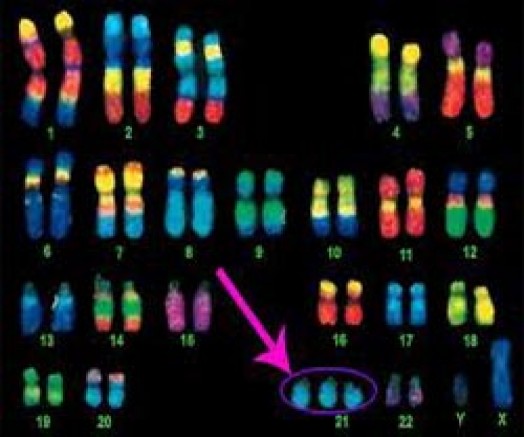
Down Syndrome is not a disease, but genetic variation; a chromosomal condition.
To put it simply, a person with Down Syndrome has got an extra chromosome. The Total Number of chromosomes in our body is 46. Out 46, 23 chromosomes come from the Mother and the other 23 come from the father. In the 21st chromosome there is triplication which causes Down Syndrome. This is why Down Syndrome is also known as Trisomy 21. As a result, the total number of chromosomes in a person with Down Syndrome becomes 47.
Down Syndrome is not something that can be cured. It is a genetic difference. Down Syndrome occurs by an error during cell division, which results in an extra copy added to the chromosome pair numbered 21st. The sole reason that is known to cause Down Syndrome is the age of the mother during pregnancy. The risk factor increases in pregnancies over the age of 35. However, as in general the majority of child-bearing women tend to be under 35, 75% - 80% of babies with Down Syndrome are borne by young mothers. Economic, racial, social or climatic conditions do not bear any difference on the occurrence of Down Syndrome. It is prevalent in around 1 in every 800 births. Approximately 7 million people live with Down Syndrome all over the world. There is no existing data for the people with Down Syndrome in Bangladesh.
